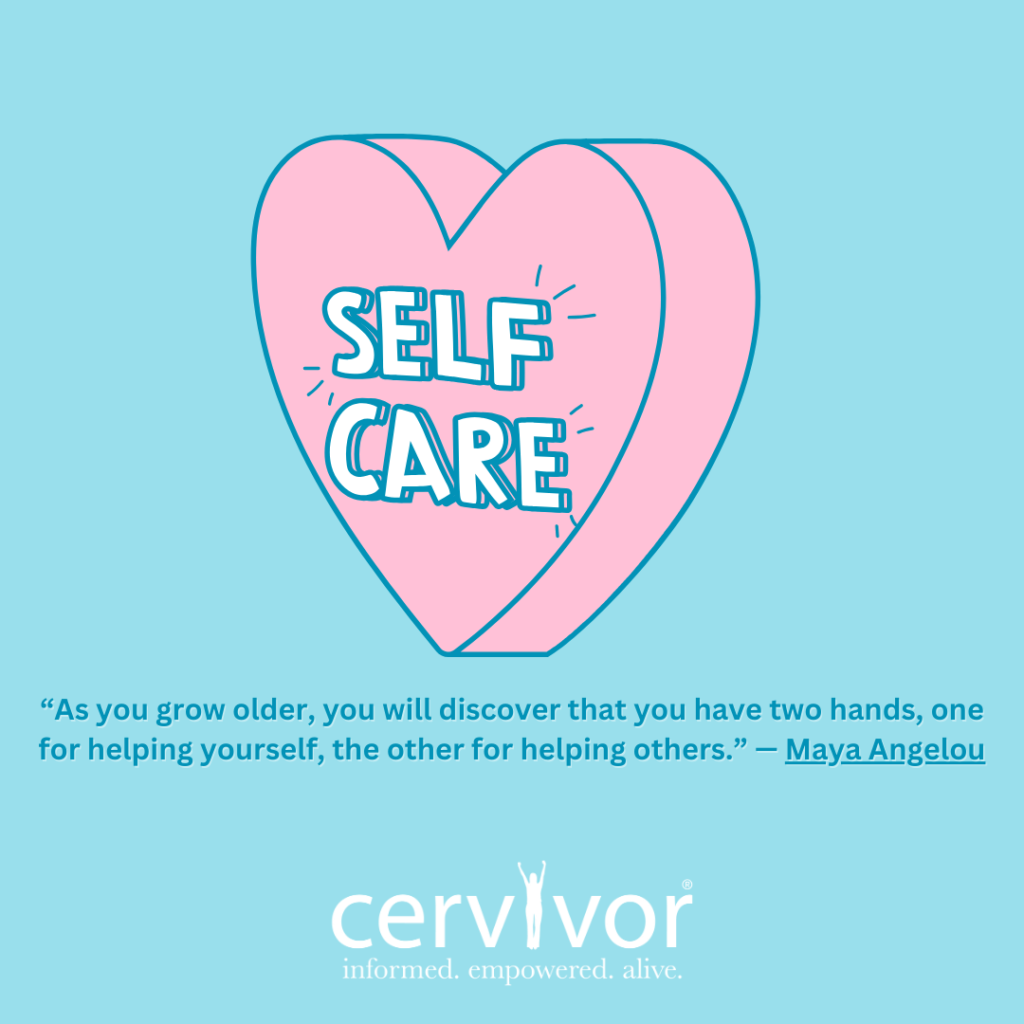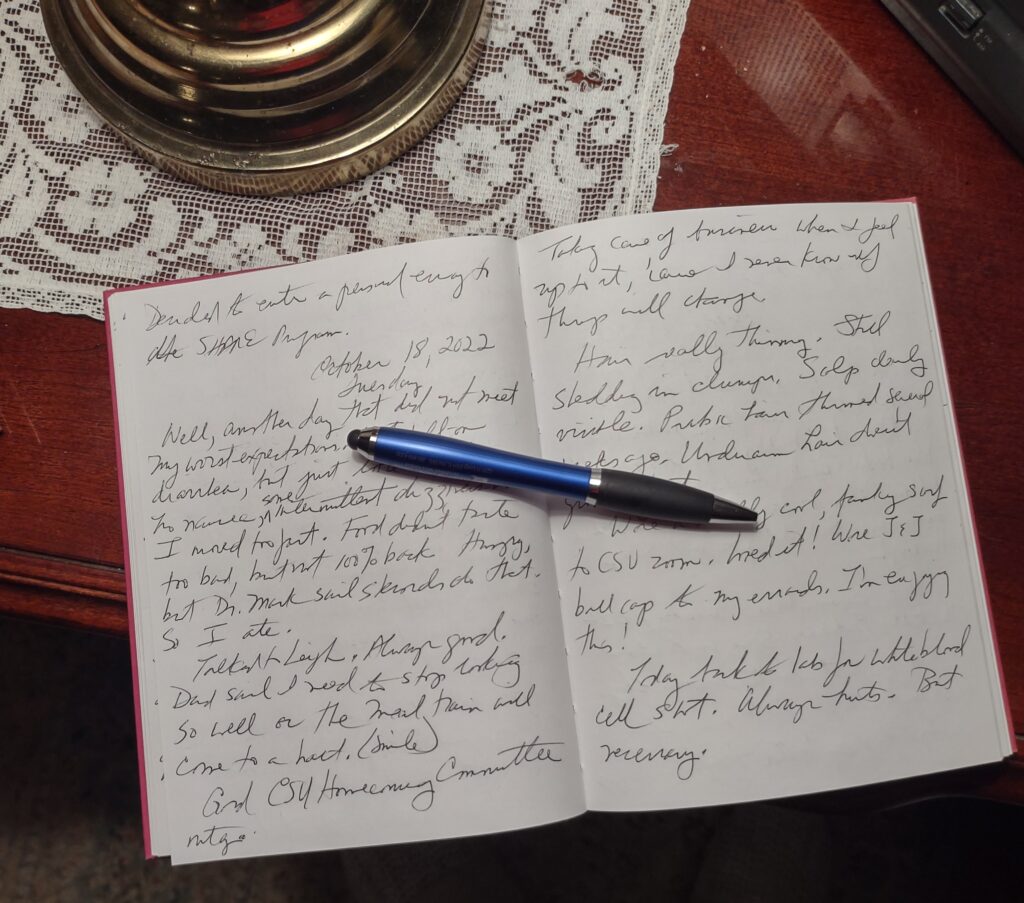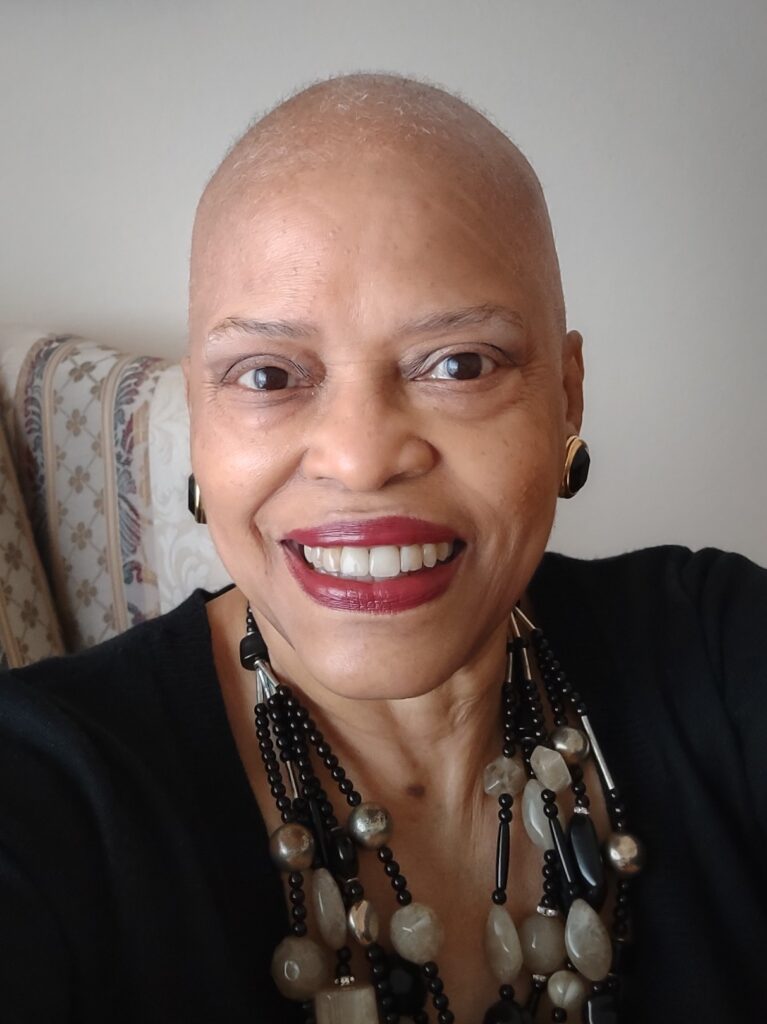As a cervical cancer patient and survivor, you’ve shown immense strength, resilience, and courage, but your self-care journey doesn’t end with a cancer diagnosis or even at the end of treatment; it’s a continuous life path toward self-discovery and healing.

Self-care is essential to help you heal physically and nurture your mental and emotional well-being. Check out these five practices for cervical cancer patients and survivors that promote self-care.
Prioritize Mental Health and Wellness
Your mental health is just as important as your physical well-being. After enduring something like cervical cancer, you may experience a wide range of emotions, including anxiety, fear of the unknown or the “new normal,”, and even survivor’s guilt. Prioritizing your mental health is crucial to help you navigate these complex feelings.
You can accomplish these things by:
- Seeking Professional Help: Reach out to a therapist or counselor who specializes in cancer survivorship. They can provide valuable guidance and support as you process your emotions and concerns.
- Joining a Support Group: Connecting with other cervical cancer patients and survivors can be incredibly healing. Sharing your experiences and hearing others’ stories can reduce feelings of isolation and provide a sense of community. Cervivor offers a virtual online support group on the second Tuesday of each month. Sign up on our events page here.
- Practicing Mindfulness: Mindfulness meditation and deep breathing exercises can help you stay present and reduce anxiety. Apps and online resources make it easy to get started.
Read for Healing
Reading can be a powerful form of self-care for cervical cancer survivors. It allows you to escape into different worlds, gain knowledge, and find solace in the written word. Start by: Choosing some inspirational memoirs. Many cancer survivors have shared their experiences in memoirs or self-help books. Reading these can provide you with insight, inspiration, and a sense of connection. Or explore fiction and fantasy. Sometimes, losing yourself in a good novel or immersing yourself in a fantasy world can provide a much-needed break from reality. Reading fiction can be a great way to relax and recharge. We strongly believe knowledge is power. Take some control back by learning about nutrition after cancer. Reading about nutrition can help you make informed choices about your diet and overall health. Jump in and join the Cervivor Book Club!
Get Creative
Engaging in creative activities can be therapeutic and fulfilling. It allows you to express your emotions and discover new passions. Start a journal to help you process your feelings and reflect on your journey as a cervical cancer survivor. It’s a safe space to express yourself freely. Exploring art therapy with drawing, painting, or crafting as it can be immensely cathartic. You don’t need to be a professional artist; the act of creating can be a soothing and expressive outlet. Or considering learning a new skill or hobby. Whether it’s playing a musical instrument, cooking, or dancing, mastering something new can boost your self-esteem and provide a sense of accomplishment.
Get Physically Active
Maintaining a regular exercise routine is essential for physical and emotional well-being. It helps with managing stress, improving mood, and maintaining a healthy weight. Depending on your physical condition, start with gentle exercises like yoga or walking. These activities can improve flexibility and strength without putting too much strain on your body. To ensure your safety and well-being during and post cancer treatment, look for cancer-specific exercise programs and classes designed to address the unique needs and concerns of cancer patients and survivors. These classes often provide a supportive and understanding environment along with modifications to fit your physical limitations. Survivor Slimdown is powered by Cervivor, Inc. and lead by Cancer Exercise Specialist and cervical cancer survivor, Patti Murillo-Casa.
Cultivate a Supportive Environment
Surrounding yourself with a supportive and caring community is vital for your healing journey. Connect with friends and family who offer encouragement and empathy. Start by communicating your needs. A lot of us fear being seen as weak or a burden when we ask for help. We’re here to say don’t. Don’t be afraid to communicate your needs with your loved ones. Let them know how they can support you on your path to recovery.
Another way to cultivate a supportive environment is to get involved with your local community and beyond. Many organizations and hospitals host events specifically for cancer patients and survivors. Attending these gatherings can provide you with opportunities to connect, share, and celebrate your journey as well as discuss the hard things you face on a daily basis. Connect with Cervivor at upcoming events or consider hosting your own MeetUp on behalf of Cervivor! (Email us for more information).
Remember, self-care is a lifelong commitment to nurturing your physical, mental, and emotional well-being. Prioritizing your mental health, finding peace in reading, and expressing yourself through creativity can all be powerful tools in your healing journey. Additionally, staying physically active and cultivating a supportive environment can further contribute to your overall well-being. And as another reminder, you are never alone. There are many resources and communities ready to offer support and encouragement. Embrace these self-care practices and various programming put on by Cervivor. Together they will help you thrive as a cervical cancer patient and survivor and continue your journey towards a healthier and fulfilled life.

